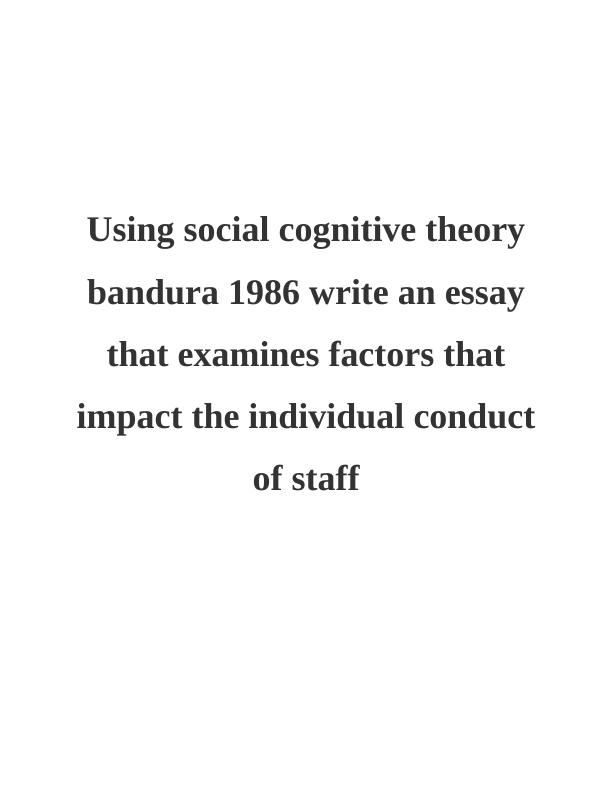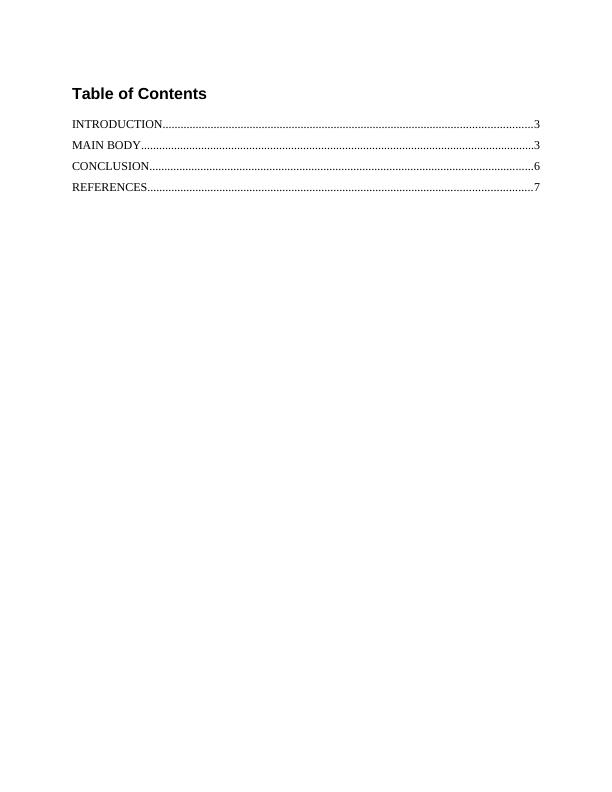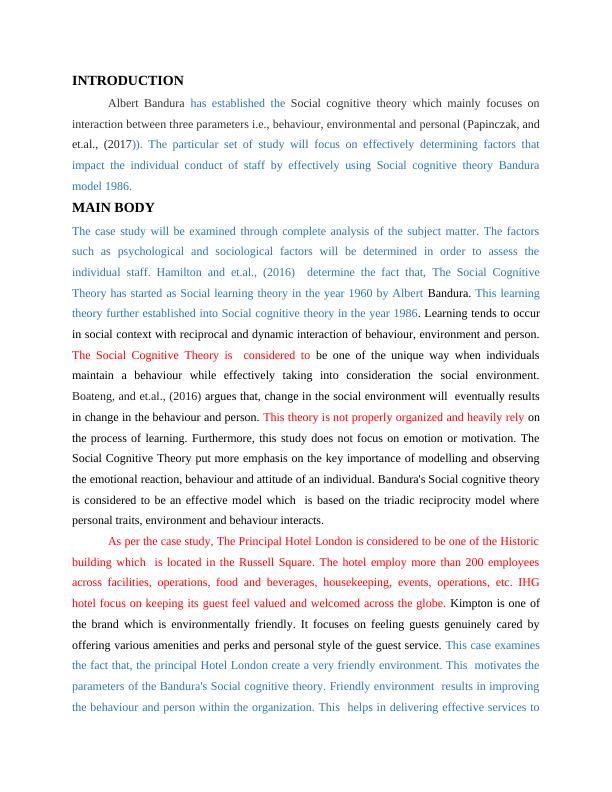Factors Impacting Individual Conduct of Staff: A Social Cognitive Theory Analysis
Added on 2023-01-13
7 Pages2007 Words64 Views
End of preview
Want to access all the pages? Upload your documents or become a member.
Social Cognitive Theory: Learning by Observing Others
|7
|1785
|40
Research Skills and the Social Cognitive Theory: A Case Study of Rebranding The Principal Hotel London
|7
|1862
|60
Utilise of Social Cognitive Theory to reduce impact of staff in IHG hotel chain
|7
|1989
|90
Learning about Stress Management for Workplace Performance Improvement
|9
|2141
|41
Factors Impacting Individual Conduct of Staff in Hospitality Industry
|7
|1945
|48
Perspective of Staff on Changes in Hospitality Organization
|7
|1861
|50


